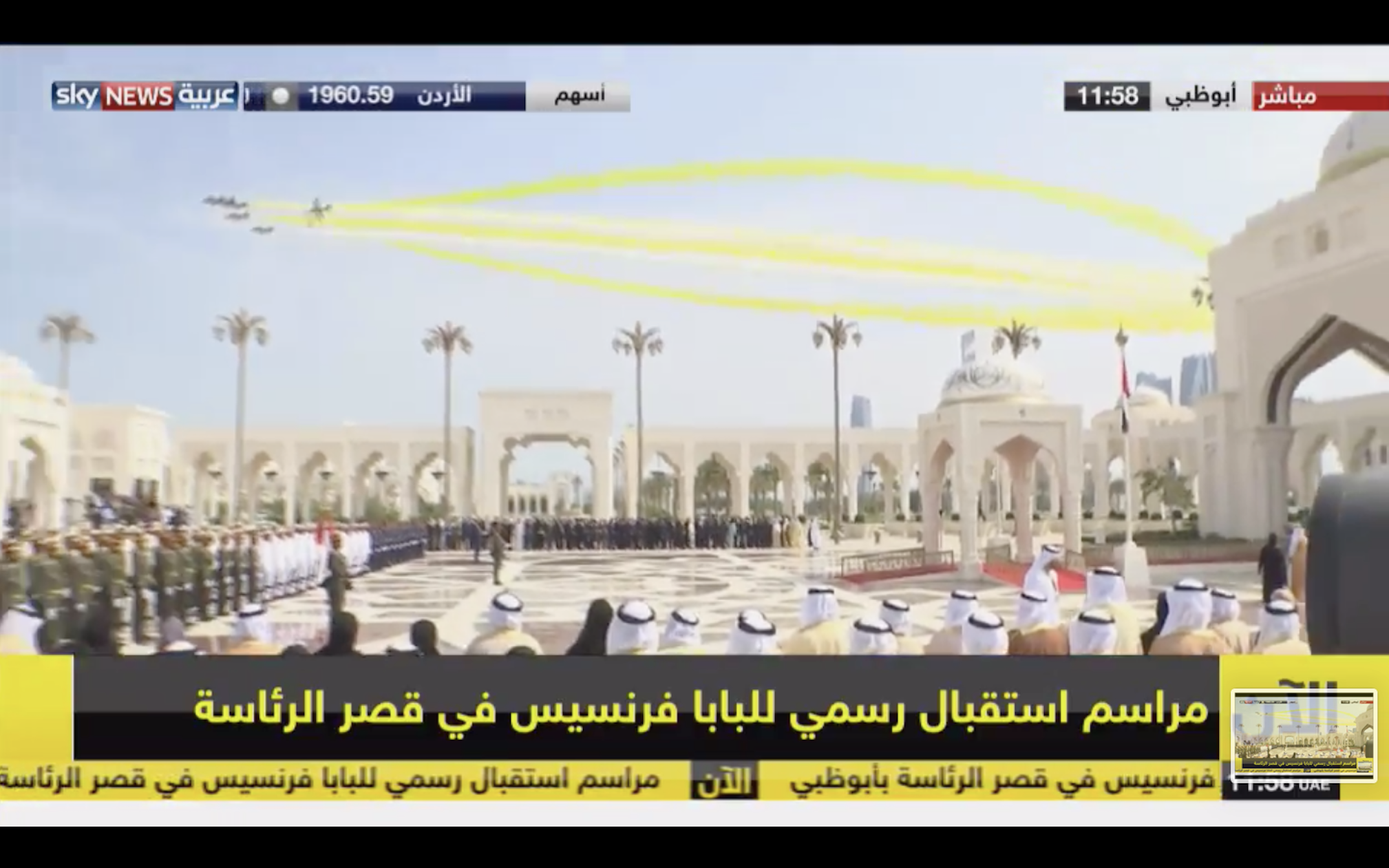Pope makes historic visit to Abu Dhabi in trip meant to bolster UAE’s ‘moderate’ credentials
Visit comes amid debate over whether state repression boosts or stops extremism
Pope Francis went to the United Arab Emirates on Monday in the first-ever visit by the head of the Vatican to the Arabian peninsula, birthplace of the Islamic faith as well as an incubator of a puritanical version of the religion that has inspired militant organisations.
The pontiff, widely seen as the most progressive figure to oversee the Catholic church in decades, has eagerly embraced outreach to the Muslim world, making pastoral visits to Egypt, Turkey, Jordan, Palestine, Azerbaijan, Bosnia and Albania since ascending to the papacy in 2013.
But some worried his latest trip, coinciding with a public relations blitz by Emirati officials, was being used to give a sheen of moderation to a UAE which is part of an axis of Arab nations increasingly intolerant of political dissent, independent journalism, and even certain religious minorities.
The trip comes amid a sharp philosophical disagreement, exacerbated during the 2011 Arab Spring uprisings. While human rights advocates and scholars in the region see extremism as a byproduct of state repression, reactionary powers such as the UAE, Saudi Arabia, and Egypt see state power as the best way to maintain tight control over society and prevent political violence.
The UAE and Saudi Arabia are also leading the war against the Iranian-backed Houthi militia in Yemen, a conflict seen as the worst ongoing humanitarian disaster on the planet, and many worry is sure to breed extremism in years to come.
“The population is exhausted by the long conflict and many, many children are suffering from hunger but they are not able to get to food deposits,” Pope Francis said of Yemen in his Sunday sermon, before heading to the UAE. “There are children who are hungry, they are thirsty, they don’t have medicine.”

Fighter jets in formation spewed yellow smoke as screeched across the sky over Abu Dhabi to welcome the pope on Monday.
“With gratitude for your warm welcome and hospitality, and with the assurance of a remembrance in my prayers, I invoke upon your highness and all the people of the United Arab Emirates the divine blessings of peace and fraternal solidarity,” Pope Francis wrote in the guestbook at the palace of UAE president Khalifa bin Zayed, ruler of Abu Dhabi, one of the seven emirates that make up the country.
“This is truly a historic visit of monumental significance,” Zaki Nusseibeh, UAE minister of state, told The Independent. “It is the first time that his holiness Pope Francis – the head of the Catholic church and moral leader of 1.4 billion Catholics and also a world moral leader – is coming to the Arabian peninsula.”
The meeting was organised by Mohammed bin Zayed, Abu Dhabi’s crown prince, who also serves as a influence over Saudi crown prince Mohammad bin Salman and has strong ties to the White House.
Unlike Egypt or Jordan, the UAE has few if any native Christians. But up to 15 per cent of the country’s largely expatriate population practises Christianity, including Arab, Philippine, Indian and European residents who make up a significant bulk of the country’s workforce and are relatively free to practise their religion. “We have over 200 nationalities of different religious backgrounds who are today residing in the Emirates,” said Mr Nusseibeh.
During his visit, the pope is scheduled to meet with Muslim scholars as part of an effort to foster “interfaith dialogue,” said Mr Nusseibeh. “We see around us the spread of intolerance, of hatred, of extremism, that feeds terrorism,” he said. “We see the break down of societies not only in own region but also abroad. We believe that extremism is one of the most serious challenges that mankind feeds today.”
But rights advocates say the UAE has backslid on tolerance of political and religious dissent. Once celebrated as bastions of free-wheeling free market capitalism, the UAE’s two wealthiest and most populous emirates, Abu Dhabi and Dubai in recent years launched campaigns to arrest and deport civil society activists, critics and members of the Shia faith considered potential agents of Iran. A court in Abu Dhabi last year sentenced UK researcher Matthew Hedges to life imprisonment on questionable national security charges before he was pardoned amid an international furore.

“Despite its assertions about tolerance, the UAE government has demonstrated no real interest in improving its human rights record,” Sarah Leah Whitson, Middle East director at Human Rights Watch, said in a statement. “But the UAE has shown how sensitive it is to its image on the global stage, and Pope Francis should use his visit to press UAE leaders to meet their human rights obligations at home and abroad.”
The UAE has spent millions in the west to hire pricey public relations and lobbying firms but has been stumbling in efforts to burnish its image. Just days before the papal visit, the UAE raised eyebrows when Emirati football fans filling an Abu Dhabi stadium pelted players of the visiting team of Qatar with shoes and bottles whilst losing an Asia Cup semi-finals match 4-0.
Later UAE Arabic-language newspapers refused to mention Qatar’s name when it won the tournament, beating Japan 3-1 in the final.
Join our commenting forum
Join thought-provoking conversations, follow other Independent readers and see their replies
Comments
Bookmark popover
Removed from bookmarks